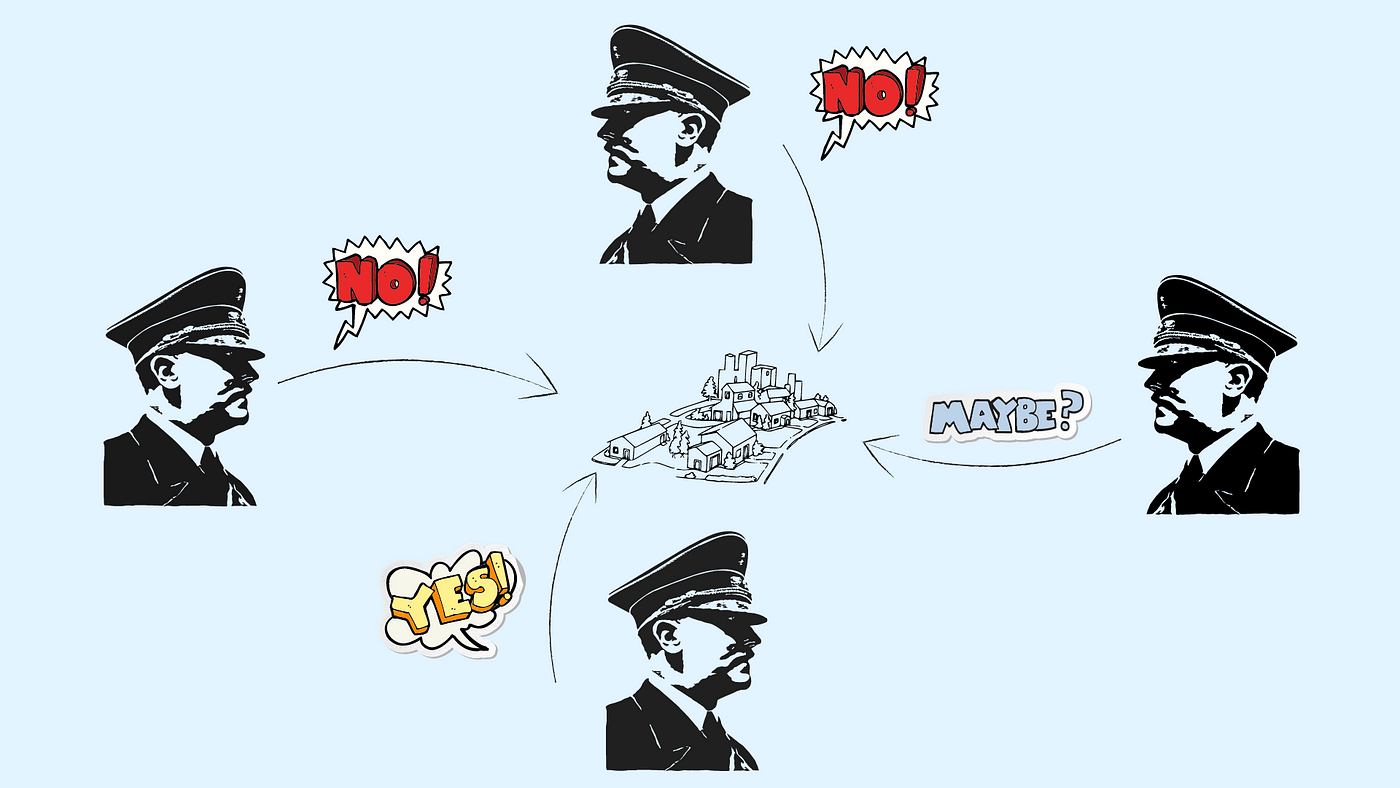The Double Spend Problem & The Byzantine Generals Problem: Solved By Blockchain
The Byzantine Generals Problem is a problem that describes how decentralized parties can cooperate despite the difficulty of achieving consensus without a central party.How can you trust information from a network in which you cannot verify the identity of other members?Let me visualize it for you. Think of a bunch of Byzantine military commanders positioned in several different areas.
They must communicate over great distances. Let’s say all of them agreed to attack the enemy — or did they?
How can all of the commanders be sure that none of them are spies, or have decided not to attack suddenly?
The challenge is similar to that of a distributed ledger: how can each participating node guarantee that no fake transactions are being inserted into the ledger?
In order for a transaction to be processed and added to the blockchain, the user or computers participating in the network must verify the transaction and solve a difficult math problem, requiring both computational power and time. These problems are known as “Proof-of-Work” problems.The transaction is approved to join the blockchain database if each node approves it by consensus. If a transaction is a broadcast that is invalid, it will be disregarded.
Bitcoin managed to solve the Byzantine Generals Problem by using a Proof-of-Work mechanism. To add information to the blockchain, a member of the network must prove that they invested some computational effort in creating new blocks.
The Bitcoin network is incorruptible because the rules governing it are publicly available for all to see. There can be no dispute or manipulation of the information on the Bitcoin network since the rules are objective.Each node validates whether blocks are valid according to the Proof-of-Work criterion. No node on the network will blindly accept new information from another node. Each node checks to see whether the information broadcasted is valid and disregards it if it’s not.
The Double Spend Problem — If all nodes in the Bitcoin network could agree on which transactions happened when and in what sequence, they could verify bitcoin ownership and create a functioning, permissionless monetary system without the need for centralized control.
Not all distributed ledgers are blockchains & vice versa. Despite this, Bitcoin’s ledger is the foundation for most cryptos today.
3




























